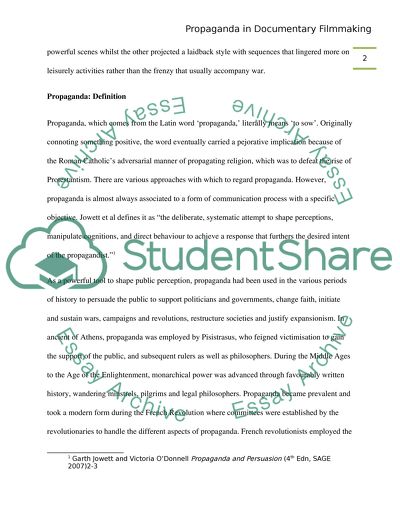Cite this document
(“Compare Leni Riefenstahl's Triumph of the Will with Humphrey Jennings' Essay”, n.d.)
Retrieved from https://studentshare.org/environmental-studies/1416798-compare-leni-riefenstahlyies-triumph-of-the-will
Retrieved from https://studentshare.org/environmental-studies/1416798-compare-leni-riefenstahlyies-triumph-of-the-will
(Compare Leni Riefenstahl'S Triumph of the Will With Humphrey Jennings' Essay)
https://studentshare.org/environmental-studies/1416798-compare-leni-riefenstahlyies-triumph-of-the-will.
https://studentshare.org/environmental-studies/1416798-compare-leni-riefenstahlyies-triumph-of-the-will.
“Compare Leni Riefenstahl'S Triumph of the Will With Humphrey Jennings' Essay”, n.d. https://studentshare.org/environmental-studies/1416798-compare-leni-riefenstahlyies-triumph-of-the-will.


